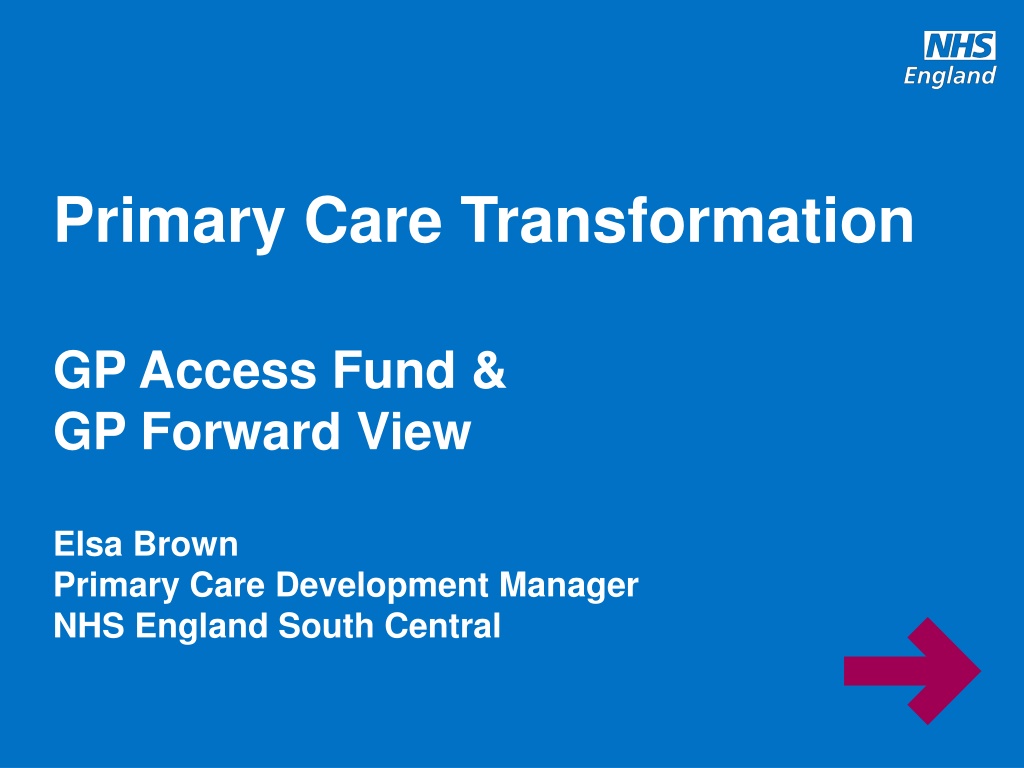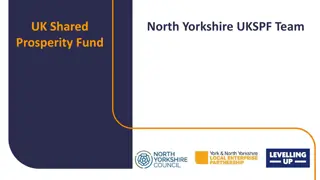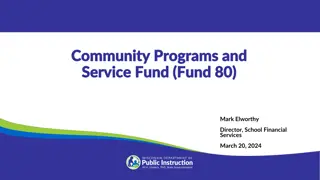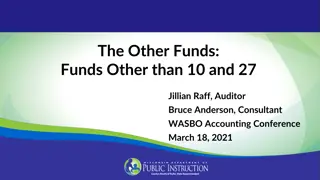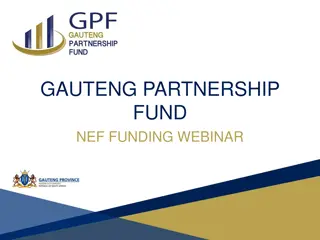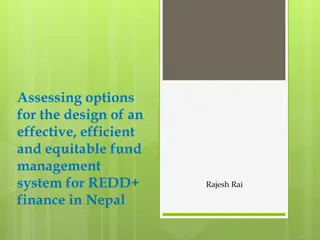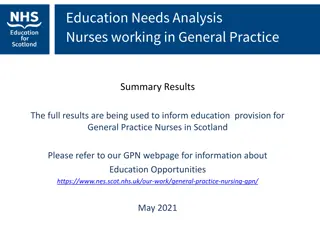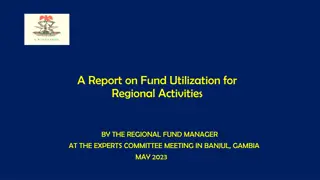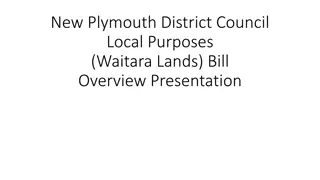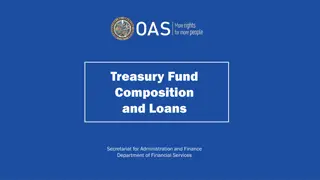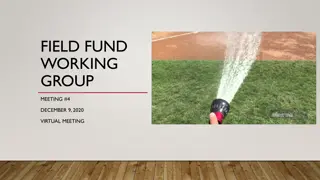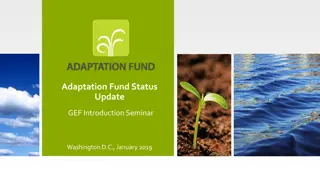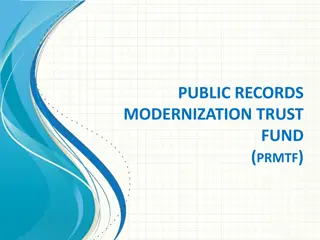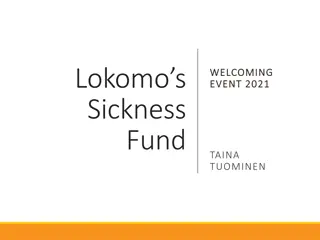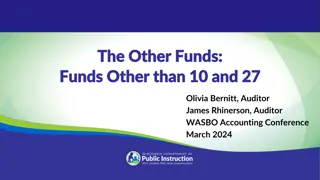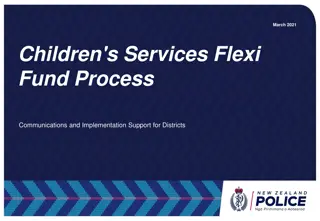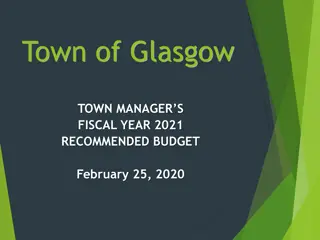Overview of GP Access Fund and Future Directions for General Practice
In October 2013, the Prime Minister Challenge Fund (PMCF) was launched to enhance access to general practice, with subsequent funding rounds expanding the initiative. Objectives included extended opening hours, improved urgent care integration, and leveraging technology for consultations. The South Central region benefited from the initiative, with multiple areas receiving funding to enhance primary care services through various innovative approaches.
Download Presentation

Please find below an Image/Link to download the presentation.
The content on the website is provided AS IS for your information and personal use only. It may not be sold, licensed, or shared on other websites without obtaining consent from the author. Download presentation by click this link. If you encounter any issues during the download, it is possible that the publisher has removed the file from their server.
E N D
Presentation Transcript
Primary Care Transformation GP Access Fund & GP Forward View Elsa Brown Primary Care Development Manager NHS England South Central www.england.nhs.uk
Summary Overview of GP Access Fund (PMCF) GP Access Fund in South Central Future Direction for GP Access GP Forward View www.england.nhs.uk 2
Overview of GP Access Fund (PMCF) In October 2013, the Prime Minister Challenge Fund (PMCF) was announced, providing 50million to improve access to general practice. 20 pilot schemes were selected for 2014/15. Slough was awarded 2.95 million for their scheme providing improved access for 148,000 patients On 30 September 2014, 100million funding for a second wave of access schemes was announced. This was expanded to 125 million. In March 2015, an additional 37 Wave Two schemes were announced covering 10.5million patients. Within South Central four sites received funding of over 15million to provide services for 1.7million people. www.england.nhs.uk 3
Objectives of GP Access Fund (PMCF) The pilots were to explore a number of ways to improve access including: longer opening hours, such as 8am-8pm weekdays and opening on Saturdays and Sundays; joining-up of urgent care and out-of-hours care; greater flexibility about how people access general practice; greater use of technology to provide alternatives to face-to-face consultations eg via phone, email, webcam and instant messaging; greater use of patient online services; and greater use of telecare and healthy living apps to help people manage their health without having to visit their GP surgery as often. www.england.nhs.uk 4
GP Access Fund in South Central Wave Two Windsor Ascot & Maidenhead Our Time for Change 153,000 Patients Oxfordshire Right Time, Right Place, Right Care 3 federations 716,000 patients Wave One Slough Steps to The Future 153,000 patients 2 Hubs OOH Provider Capacity & Demand Hub-based MH Services Care Homes Service 6 Locality Hubs E-consultations Community Navigators ECP Home Visiting Online portal COACH 4 Cluster Hubs Complex Case Management Stakeholder Engagement Swindon SUCCESS 230,000 patients Gloucestershire Joining Up Your Primary Care 636,000 patients 2 SUCCESS Centres Home Visiting Service Children and Young Person s Clinic Interoperability 13 Choice+ Centres Social Prescribing Practice Nurse Service Video consultations www.england.nhs.uk
Outcomes from Wave 1 Evaluation The 20 Wave 1 sites have been ambitious, and their innovations have extended far beyond increasing the number of hours that general practice is available for. The Fund has been successful in initiating a culture change amongst the primary care community. The injection of investment into primary care has had a catalytic effect, encouraging practices to move away from operating as independent small businesses and, instead, work collectively. This was very much driven by the requirement set in the selection process of a minimum population size. Typical demand across the schemes indicates extended hours appointments in the week are highly utilised, as are Saturdays (mornings over afternoons). Typically there is very low utilisation of Sunday appointments. Up to May 2015, there has been a statistically significant reduction in minor self-presenting A&E attendances by patients registered to Challenge Fund GP practices. This represents a 15% reduction (compared to 7% nationally). Patient and staff satisfaction is generally high with new approaches. Multiple approaches to improving access have been tested and to date telephone consultations have proved popular, successful and cost effective. Experience with e-consultations is more limited but also positive. There has been very limited patient take-up of video consultations. Integration of other practitioners into primary care provision has been successful in almost all cases. Joint working with ANPs, pharmacists, the voluntary sector, care homes, physiotherapists and paramedics has released local GP capacity and more appropriately matched the needs of patients with practitioners. www.england.nhs.uk 6
Future Direction for Extended Access Next Steps for GP AF: Mainstreaming Enhanced Interoperability Integration with OOH/NHS 111 Spread Models across STPs Sharing Learning across region Included in Planning Guidance 16/17 - Funding for all Wave 1 & 2 schemes 17/18 expansion to Transformation areas 18/19 - 3.34 per head (weighted) for all other areas to begin delivery 19/20 - 6 per head (weighted) for all areas www.england.nhs.uk 7
Extended Access Criteria Timing of appointments: commission weekday provision of access to pre-bookable and same day appointments to general practice services in evenings (after 6:30pm) to provide an additional 1.5 hours a day; commission weekend provision of access to pre-bookable and same day appointments on both Saturdays and Sundays to meet local population needs; provide robust evidence, based on utilisation rates, for the proposed disposition of services throughout the week; and appointments can be provided on a hub basis with practices working at scale. Capacity: commission a minimum additional 30 minutes consultation capacity per 1000 population, rising to 45 minutes per 1000 population. Measurement: ensure usage of a nationally commissioned new tool to automatically measure appointment activity by all participating practices, both in-hours and in extended hours www.england.nhs.uk 8
Extended Access Criteria (cont) Advertising and ease of access: ensure services are advertised to patients, including notification on practice websites, notices in local urgent care services and publicity that into the community, so that it is clear to patients how they can access these appointments and associated service; ensure ease of access for patients including: all practice receptionists able to direct patients to the service and offer appointments to extended hours service on the same basis as appointments to non-extended hours services patients should be offered a choice of evening or weekend appointments on an equal footing to core hours appointments. Digital: use of digital approaches to support new models of care in general practice. Inequalities: issues of inequalities in patients experience of accessing general practice identified by local evidence and actions to resolve in place. www.england.nhs.uk 9
GP Forward View to 2020/2021 Workload Workforce Investment www.england.nhs.uk Infrastructure Care Redesign
Any Questions? GP Access Fund https://www.england.nhs.uk/ourwork/futurenhs/pm-ext-access/ GP Forward View https://www.england.nhs.uk/ourwork/gpfv/ Contact Details Elsabrown@nhs.net www.england.nhs.uk
